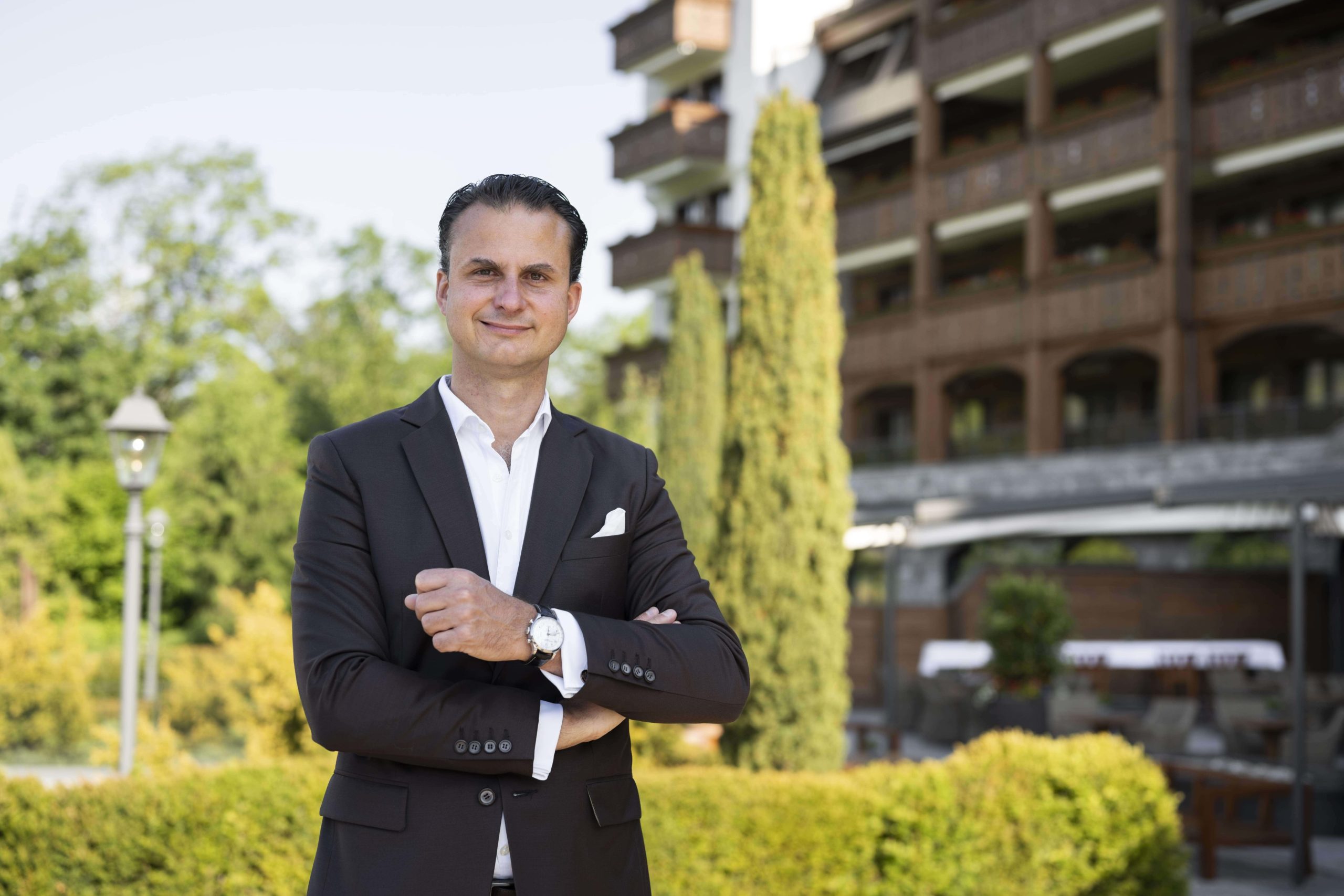In the heart of high-end hospitality lies a blend of luxury, human connection, and unending passion. Tim Weiland, the General Manager of The Alpina Gstaad, a five-star luxury boutique hotel in the center of Switzerland, understands this heartbeat of hospitality better than most.
An industry veteran, Tim's career path is a testament to his passion and dedication to hospitality, with rich experiences that span from South Africa to Switzerland, and from the Maldives to Morocco.
What made you decide to get into hospitality?
Well, the first person who gave me the idea to dedicate my career to hospitality was a friend of my parents, the Swiss Consul I met in South Africa while I was working as a waiter at an event at the Consulate. He spoke to me right after the event and said “you know, if you enjoy this type of work, then you should really do hospitality. And, if you want to work in hospitality, then you should go to Switzerland ''.
I was 16-17 years old, and at that moment I said, “Yeah, I think that's what I need to do!”. So, I went to the EHL Hospitality Business School in Switzerland, which was a great decision. From there, a lot of doors opened up.
How do you maintain your passion this far into your career?
The passion is maintained by the diversity of the tasks and the responsibilities, and again, the human interactions. You have such a multicultural, multilingual, diverse network every single day.
Every day has its own little surprises and challenges, every single day something comes up, which requires a different mindset, attention, or way to connect with people. You're in touch with such a wide variety of different people and professions, that it never gets boring. That's what I find fascinating, and it’s definitely one of those aspects which has remained true throughout the years.
Currently, we are facing a talent shortage in the industry, and there’s a lot of talk about burnouts. How do you remain passionate without getting burnt-out by it?
If you hate fishing, then sitting there for hours waiting for a fish to bite is the worst thing you can imagine in life. But, if you're passionate about it, you're going to enjoy the wait. The same goes for hospitality
So, if you ask me how do we drive people to hold on to that passion? To a certain extent, I think it needs to be ingrown. Someone who doesn't like people, who doesn’t like hospitality in general, will have a tough time staying in it.
But, those who have the first grain of interest can grow that, and every day will be more rewarding. And, as you progress in your career, you'll feel that your passion is being rewarded back, and that'll be a continuous drive from day to day.
Do you consider hospitality education a must for someone aiming to reach a leadership role?
I think having a background from a hospitality school it's a great platform to start off with. I don't think it's 100% necessary, but it can give you a good first insight into the expectations of hotel operations.
If your career path is towards general management, then a hotel school education can contribute to all the business elements you need and help acquire very valuable knowledge. But it's definitely only a base.
What you need to build up is a mix between education and experience. First, you need to have a certain passion for what you're doing. Then comes the educational foundation, and the practical experience, and learning experiences as you progress.

What were the three most important lessons that you got during your education that were instrumental for you throughout your career?
The most important one is learning to learn. You need to be open to new things, to find new information, and to be able to sort out what you need to remember and what you can forget that's already obsolete.
Another important thing is numbers. None of us are math geniuses, but it's important to understand the basics of numbers within hospitality no matter the role you're in.
The third one would be human interactions. Most hotel schools are much more focused on group work, on collaboration, on trusting the people you work with.
This is a very strong pillar for the future, because not a single hotel in the world can succeed as a one man show.
You went through the F&B route to the General Manager role. There’s always a debate about F&B versus Rooms division as the preferred path. What would you recommend?
I would say that this is changing now. Increasingly, there are opportunities for people coming from more administrative backgrounds. Nowadays, a lot of owners are very much focused on sales, marketing, or finances, and they prefer a GM who really understands those aspects.
The big advantage about the two classic paths, F&B and rooms, is that you're involved with a lot of people, so you’re automatically managing teams with all the various challenges that go with it. But, I don't think that there's a preference between the two. It comes very much down to your personal passion.
If you are more passionate about one thing or the other, you are definitely going to do it better. The better you do something, the more passions you show, the more people will see it. And when the time is right, they will notice you for that next promotion.
You’ve cut your teeth in relatively niche ultra-luxury brands and properties. Was this a coincidence or was it a deliberate career choice for you?
It was a very conscious career choice. I did one of my internships in Disneyland Paris, it was a learning experience and I wanted to work in something big just to see how it is. But, after those six months, I could definitely say, “been there, done that, never again will I work in such a big hotel”.
It's not my kind of thing. I enjoy knowing the people I work with, the staff, and the guests. And in those big size properties, it becomes a bit anonymous in a way. So I very consciously chose to work in a field where those human connections can actually be maintained. Where you know the names of the people you're working with, you recognize a guest by their face, and not by their membership numbers. But everyone has their own preferences, right?
As a general manager, what are your priorities for your job?

Making sure that you put the right people in the right positions to do the best of what they're capable of doing. Again, it's not a one man or one woman show. It's everyone working together. It's giving that liberty as well for them to get the right people within their teams.
If I give the executive chef the right means to recruit the right people, buy the right product to create the things he's passionate about, then I know that what’s going to be on the plate is going to satisfy the guests.
I think that's really the main focus, everything else is a result of it. It's about having the right people, in the right positions, with sufficient resources. And that's how I see my role: not to interfere too much. It shouldn't be micromanagement. I try to ask the teams: “how can I help you?”.
As a GM, what policies have you implemented in terms of maintaining staff wellbeing?
We've recently worked with a hotel school on a student project regarding staff retention and creating a better work environment and work-life balance for the teams. There were a lot of very interesting points which came out of it.
None of them are rocket science, but split shifts were a big frustration. It's typically considered a waste of time for many because you're doing four commutes per day.
Another thing is the meals. We have a lot of people who are by choice gluten-free, vegetarian, or vegan. We’ve tried to cater to that as much as possible so that basically everyone finds their personal meal preference on a daily basis. I think nutrition is one of the most important aspects to staying healthy and happy at work.
And, again, the way that people are treated within their teams is definitely an important part of mental health. You should be allowed to make mistakes, you know. That’s normal. You can learn from it and improve. You don’t want employees to live in fear of failure.




